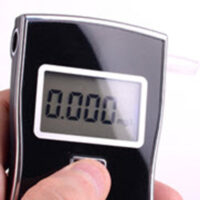Can I Refuse A Breathalyzer Test In Georgia?

A 2019 Georgia Supreme Court Ruling gives drivers the right to refuse a breathalyzer test if they are pulled over. This ruling, which is a significant deviation from Georgia’s previous implied consent laws and the implied consent laws implemented in most states, also provides that a refusal to take a field breathalyzer test cannot be used against a driver in court and cannot be used as a basis for their arrest. However, that is not to say that refusing a breathalyzer is without consequence. There are a number of factors to understand, weigh, and consider.
Refusing a Breathalyzer Doesn’t Mean You Will Avoid Prosecution
Many people think that by refusing to take a breathalyzer test the police will lack the evidence to convict them. However, that is rarely the case. While this ruling does allow drivers to refuse a field breathalyzer test, it does not allow them to avoid field sobriety tests, such as walking toe-to-toe in a straight line, lifting one foot six inches above the ground, and other non-chemical methods of assessing a driver’s possible intoxication. Other factors, such as the driver’s demeanor, the smell of alcohol, slurred speech, reckless driving, or other indicators can also be used by police to get a warrant for a blood test.
In short, if police have reason to suspect that you are driving intoxicated, refusing a breathalyzer test will not prevent them from making an assessment and arrest. You won’t be allowed to drive away if you appear intoxicated simply because you refused a field chemical test. Police are permitted to arrest someone for DUI without a breathalyzer test. In fact, the police report, which details the driver’s demeanor and interactions with police, is one of the most important pieces of evidence in any DUI case. Additionally, once arrested for DUI, drivers must submit to a breathalyzer test at the police station. Unlike the field test, those arrested for DUI are legally required to submit to an evidentiary chemical test at the police station. In that sense, refusing a breathalyzer test is often just delaying the inevitable. However, alcohol is metabolized fairly quickly by your body. Studies reflect that your blood alcohol level decreases at a rate of 0.015 per hour. If you are just on the cusp of a violation, it’s possible that a delay could be beneficial.
What to do if You Refused a Breathalyzer Test
While your refusal to take a breathalyzer test cannot be used against you in criminal court, it does carry administrative penalties. If you refuse a breathalyzer test, you have ten days to request an Administrative License Suspension (ALS) Hearing Request with the Department of Driver Services. If you fail to take this step (and pay the required fees) within ten days of your accident, your license will be suspended on the 31st day following your arrest. You also lose the chance to appeal or fight the suspension.
Talk to an Attorney
If you have been charged with driving under the influence in Georgia, it’s important to contact an experienced Georgia criminal attorney as soon as possible. Hawkins Spizman Trial Attorneys, serving all of Georgia, including Atlanta, Dunwoody, Alpharetta, Cobb County, Fulton County, Gwinnett County, Johns Creek and Sandy Springs, can work to mount a solid defense to your charges. Contact us today for professional help.
Resource:
wgxa.tv/news/local/the-right-to-say-no-georgians-can-refuse-breathalyzers-but-blood-tests-still-an-option
